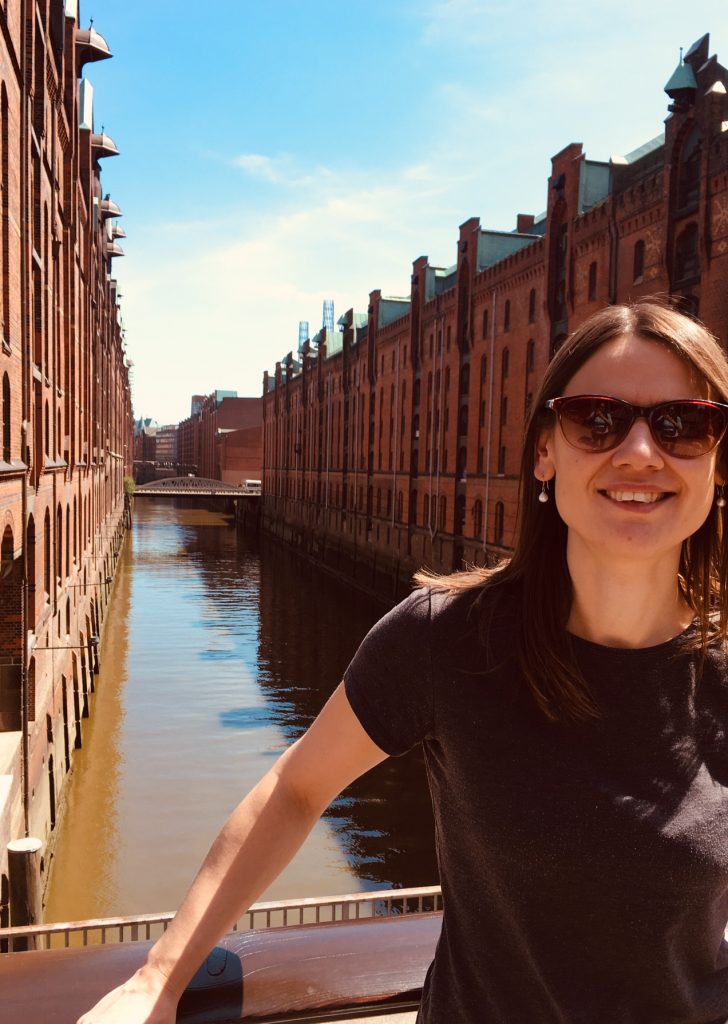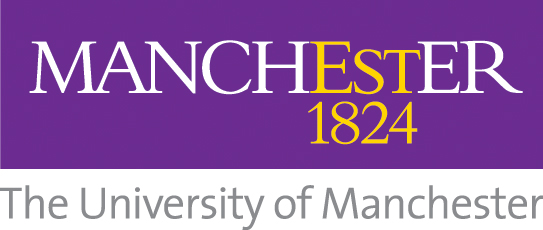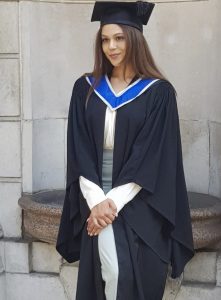
We are pleased to announce our list of sponsored sessions for the forthcoming Royal Geographical Society annual conference that will take place 27th – 31st August 2019. This year we are sponsoring 12 sessions for the annual conference. If you are interested in submitting a paper to a session for the conference, please contact the session conveners.
Postgraduate Snapshots of Trouble and Hope
Will Jamieson, Royal Holloway, University of London William.jamieson.2017@live.rhul.ac.uk
Amy Walker, Cardiff University walkerA13@cardiff.ac.uk
Abstract:
We live in troubling times, and in troubled places. Indeed, politically, economically and ecologically, trouble has acquired an inconceivable planetary dimension, cumulating with significant social and cultural transformation. When we situate these troubling times in spaces and places, they open up possibilities of rupture, alterity, and hope. If ‘staying with the trouble requires learning to be truly present’ (Haraway 2016: 1), how can we as geographers make our concepts and theories ‘present’ to the trouble at hand? This session intends to explore ways in which Postgraduate Social and Cultural Geographers are ‘staying with the trouble’ to uncover these spaces of hope, possibility, and rupture, which lie embedded within existing social orders and cultural practices. Presenters are encouraged to explore how we can think through and with geographies of trouble and hope, and how we can make this dialectic present to surpass the impasse of our troubling times.
Each presentation will be centred round a single ‘Snapshot’ (whether an image, artefact, quotation, soundbite, field diary entry, or mini-video clip) which will form the focal point for 8-10 minute contributions. The Snapshot is intended to be either a literal or metaphorical prompt through which the topic of the presentation can be represented. As such it is envisaged that the snapshot will be the main artefact around which each contribution is orientated. We thus encourage participants to think critically about and fully utilise the trajectories, tensions, and textures of their snapshots as a means of enlivening understandings of their chosen topic.
‘Building better worlds’: utopian and dystopian speculative fictions
Richard Scriven, National University of Ireland Galway, r.scriven@umail.ucc.ie
Abstract:
Speculative fiction – including science fiction, fantasy, and supernatural fiction – articulates a vast range of human hopes and troubles through metaphor, analogy, and imagination. In different media and embodied practices, creators and audiences (co)produce new beings, planets, and landscapes replete with utopian and dystopian tropes. Reality is reflected and refracted in the compassionate humanity of Star Trek, the struggles of good and evil in Harry Potter, the post-apocalyptic challenges of the Fallout video games, and in countless other universes. This session explores speculative fictions as layered terrains that interweave contemporary and historic social, cultural, and political concerns with imaginative capacities. Papers are invited that critically engage with these topics, including (but not limited to) the representations of socio-political issues, the generation of new worlds, the disruptive faculties of fiction, gender and identity portrayals, the innovation of fanfics and cosplay, the solidarities of conventions and fan groups, and the relevance of escapism. Contributors are encouraged to creatively present their papers through the use of performance, participation, materials, and audio-visual cues.
The geographies of loneliness and solitude
Eleanor Wilkinson, Southampton University
Sarah Marie Hall, Manchester University
Alison Stenning, Newcastle University
Abstract:
This session seeks to provide a critical, geographical reflection into the so-called ‘epidemic’ of loneliness. Loneliness has been positioned as a pressing health concern, depicted as a risk to both physical and mental wellbeing, but also as a socio-economic issue of inequality. The rise in solo living, geographically distant kinship networks, and declining community bonds are all seen as potential factors that have resulted in this rise in loneliness. People are seen to be living increasingly isolated and detached lives, and this is something which people may increasingly be reflecting on and working to mitigate in their everyday lives. In this context, in 2018 the UK government published the first ‘strategy for tackling loneliness’, which set out ‘to build personal and community resilience’. Yet missing from this strategy is the role that austerity measures may have had in intensifying loneliness. Austerity has resulted in the closures of social infrastructures that offered the potential for connection, such as libraries and children centres, and has also led to housing and welfare reforms that have displaced people from the communities in which they once lived.
The session will also seek to move beyond framing loneliness as a ‘problem’, to examine what Denise Riley has termed ‘the right to be lonely’. Central here is the idea that to be alone is not the same as to be abandoned. In the context of the remaking of domestic and local spaces in austerity, for example, some are being expected to share everyday space in ways that are experienced as uncomfortable or undesirable. What might it mean to desire solitude, and what if our problem might not be disconnection, but too much closeness? This session will reflect upon how solitude may be an integral part of people’s mental wellbeing and ask how this broader discussion of the geographies of solitude might speak back to dominant policy concerns around loneliness.
In these ways, this session seeks to think about geographies of loneliness and solitude both as spaces of trouble and as spaces of hope. We welcome submissions that explore geographies of loneliness and solitude, connection and disconnection, at a variety of scales and in a range of geographical contexts.
Collective Feelings and Contemporary Conditions
Ben Anderson, Durham University, ben.anderson@durham.ac.uk
Helen Wilson, Durham University helen.f.wilson@durham.ac.uk
Abstract:
How can we sense, diagnose, and present the multiple ‘collective feelings’ that constitute contemporary conditions? What particular challenges do collective feelings pose for conceptualisation, research, and (re)presentation in the social sciences and humanities in the midst of ongoing interest in spaces of affect and emotion? The sessions will explore these questions at a time of apparent ‘crisis’ during which large-scale, societal moods are frequently invoked by commentators as causes of a range of today’s geographies of ‘trouble and hope’. For example, the emergence of various populisms and events, including the election of Donald Trump and Brexit, have been explained in relation to the feeling of being ‘left behind’, hope for something better, or rage at disempowerment, whilst climate change has been connected to a widespread sense of futility and hopelessness mixed with denial. In relation to the widespread claim of the role of collective feeling, the session has two aims. First, to map the relations between specific collective feelings and conditions (including but not limited to the ascendency of the right, crises of liberalism, precarity, transformations in racial capitalism and settler colonialisms, climate crisis and species loss) and events (including but not limited to Brexit, the election of Trump, and the advent of new social movements). Second, to stay with the challenges of conceptualising collective feeling in the midst of the emergence of concepts such as atmosphere, mood, and structures of feeling.
Hypersurfaces: exploring the geographies of multi-dimensional bodies
Mark Holton, University of Plymouth mark.holton@plymouth.ac.uk
Catherine Wilkinson, Edge Hill University catherine.wilkinson@edgehill.ac.uk
Samantha Wilkinson, Manchester Metropolitan University samantha.wilkinson@mmu.ac.uk
Abstract
The intimate turn in Geography has renewed engagement in bodies as visceral spaces of encounter that contain complex material, symbolic, emotional and affective dimensions (Price, 2013). Yet, while bodies are often demarcated – presenting the edges as margins, or a kind of hinterland – we question whether these edges could, in fact, represent frontiers, opportunities to extend the body beyond its ‘fleshiness’. We term this ‘hypersurface’ – the multiple and unspecified dimensions of the body’s edges through which corporeal practices are performed – to enquire how bodies’ materialities (skin, hair, nails etc.) can exist in, on and beyond the body in different and competing ways. We invite opportunities to think critically about how the features of the body that exist on, around or beyond its surface(s) might characterise, define and categorise identities and positionalities. These dimensions include – but are not limited to – skin, head/body hair, nails teeth etc. and how these inscribe (e.g. tattoos, scarring, make up etc.) and augment (e.g. hair/nail extensions, teeth veneers etc.) the body. Moreover, bodily absences (e.g. through alopecia, medically-induced hair loss, or congenital limb absence, amputation and prosthesis) carry equal importance, specifically in challenging perceived ‘acceptable’ dimensions of the body (Wilkinson et al., 2018).
We invite contributions that explore:
• How/whether the body’s surface/materialities contributes to intimate, emotional and affective geographies.
• In what manner bodies are performed at the edges of the body (e.g. hair/beauty practices etc.).
• The social construction of bodily routines (e.g. hair removal, make up application, body covering/exposure etc.).
• In what way the body’s surfaces might position identities in society (e.g. cultural practices etc.).
Alternative Spaces of Learning
Menusha De Silva, Singapore Management University menushads@smu.edu.sg
Orlando Woods, Singapore Management University orlandowoods@smu.edu.sg
Abstract:
Learning is a continuous, life-long process. It engages with diverse ways of knowing. In comparison, education is the formalisation of learning, and is rooted in hegemonic understandings of knowledge. Education is but one form of learning, to which many alternatives exist. For most individuals, formal education and informal practices of learning are integrated into one holistic framework of understanding. Yet, whilst the geographies of education have tended to focus on formal spaces of education (notably, state-funded schools and universities), they do not fully capture the range of learning spaces and experiences that are defined and shaped by our subject positions and journeys through life. In this session, we aim to broaden the geographies of education by exploring “alternative spaces of learning” within and beyond spaces of formal education. We invite papers that engage with the following questions:
• What constitutes alternative spaces of learning, in terms of pedagogies, students, temporalities?
• How can alternative spaces of learning offer hope to individuals in troubled times?
• How do these spaces problematize and/or align with hegemonic understandings of learning?
• Do understandings of alternative education and learning vary geographically?
• What are the spatialities that emerge from these contestations of global and/or localised understandings of learning?
Crafting Alterity: Hopeful Geographies of Creativity and Making
Rebecca Collins, University of Chester, rebecca.collins@chester.ac.uk
Dr Thomas Smith, Masaryk University, smith@fss.muni.cz
Abstract:
The geographical literature on craft and creative practices continues to grow apace (e.g. Price & Hawkins, 2017; Carr & Gibson, 2017). With this session, we seek contributions which trace the transformations brought forth by material engagement in various sites of vernacular and everyday creativity – not least transformations in understanding our being-in-the-world, material affordances, meaningful work, and alternative conceptions of embodied sustainable practices such as maintenance and repair.
Potential considerations include:
• Which practices do diverse craft spaces and communities encourage (or not) to counter unsustainable modes of living?
• Given that craft has been highlighted as key to grappling with the value-action gap in sustainability research (Coeckelbergh, 2015), what role can embodiment and skill play in sustainability transitions (see Royston, 2017)?
• What scales, temporal and spatial, are relevant in such (often slow and place-specific) practices, given the urgency of our ecological predicament?
• Amidst a growing recognition of certain crafts as endangered ‘intangible cultural heritage’ (HCA, 2017), and in tandem with the ‘dematerialisation’ of societies in the global North, how do skills linger in the landscape, and how does this affect socio-cultural resilience (Carr, 2017)?
We particularly welcome methodologically innovative research grounded in the messy materiality of the workshop, as well as heretofore lacking perspectives from beyond the global North.
More-than-human haunted landscapes: trace-ing binaries of hope/desolation
Adam Searle, University of Cambridge aeds2@cam.ac.uk
Jonathon Turnbull, University of Cambridge jjt44@cam.ac.uk
Abstract
Landscapes bear traces of hope and desolation. They are at once the physical manifestation of geologic time and the coming together of living and nonliving things, reminders of the past through iterations of the future. These traces haunt landscapes, they are active and inter/active of what Derrida would name hauntologies, methodological invitations to consider what is through attention to what isn’t. Landscapes are haunted in multifarious ways (e.g. through extinction, nuclear disaster, contamination) and the traces of haunting events refute the concept of singularity in meaning. What do haunted landscapes have in common? Their traces are material, for example, through geological imprints or altered ecological relations; but they are simultaneously virtual, culturally and affectively powerful, troublesome and stimulating. Haunted landscapes allow the binary of hope/desolation to function, often bringing promise with despair, engendering a dialectic between utopia and dystopia. With this panel, we invite papers interested in these traces which allow the binary of hope/desolation to function, asking how we can learn from each empirical haunting. In particular we encourage research at the intersections of human/animal/plant/geological worlds, and how the constellations of these shared existences inspire novel modes of understanding geographies of landscape, and the interrelations of existence and environment.
Geographies of alienation/alienating geographies
Jay Emery, University of Leicester jde7@le.ac.uk
Katy Bennett, University of Leicester, kjb33@le.ac.uk
Abstract:
This session aims to initiate a geographical research agenda focussed on the concept of alienation. We are often told by the media and political figures that certain demographics are alienated, and that political institutions or spaces are alienating. Moreover, these alienations are claimed to be generative of the populist politics and democratic ruptures of recent times. Harvey (2018), in a Marxian framework of alienation, has recently argued that alienation is so widespread as to be ‘universal’. Harvey suggests that neoliberal political economies are at the root of this ‘universal alienation,’ however, other geographers use alienation as a descriptor for the opposite or absence of belonging. Like belonging, the meaning of alienation can appear axiomatic and self-explanatory. Yet, despite apparently being at the centre of our current political and social malaise, alienation is rarely defined, theorised or examined as a concept or affective state. Aside Marx’s theorisations, little has been propositioned regards how alienation is formed, how it feels as an affective intensity or how it can be mediated. Acknowledging the clear geographical dimensions of alienation, this session engages directly with the chair’s theme by centring the supposed root of so much of the world’s troubles and barriers to hope.
The Geographies of Folk Horror: from the Strange Rural to the Urban Wyrd
Julian Holloway, Manchester Metropolitan University j.j.holloway@mmu.ac.uk
James Thurgill, The University of Tokyo jthurgill@g.ecc.u-tokyo.ac.jp
Abstract:
Over approximately the last decade, Folk Horror has seen increasing popularity in films, blogs, books and on internet fan pages. Folk Horror concerns itself with marginal and liminal landscapes that in various ways are active in the production of the horrific. Folk Horror’s landscapes are predominantly rural, coding the countryside as oppositional to modernity and capable of hosting ancient secrets ready to be revived or unearthed to the terror of the outsider. Folk Horror’s texts and practices revel in the idea that underneath the superficial solitude of the pastoral, malevolent forces work to promote acts of unspeakable violence. Beyond the landscape itself, the ‘folk’ of Folk Horror also deliver a sense of disquiet: its communities, with their forgotten or erased practices and rituals are central to the horrific, often committing atrocities themselves in order to satisfy the lore that protects the land.
The reach of Folk Horror arguably extends beyond the rural through the Urban Wyrd, wherein the cracks in the sheen of the cosmopolitan urban let forth the ghosts of occluded pasts and disturbing practices. This session therefore seeks to bring together those interested in Folk Horror, the Strange Rural, the Gothic countryside or the Urban Wyrd.
Papers are invited on the following non-exhaustive list of topics:
• Defining and characterising Folk Horror geographies.
• Representing the rural in Folk Horror.
• The cultural politics of Folk Horror and its geographies.
• The folk of Folk Horror.
• The horror of Folk Horror, its affects and atmospheres.
• Survivals, remnants and the place of time in Folk Horror.
• The ‘revival’ in interest in Folk Horror, its significance and implications.
• Living with and in the ‘Strange Rural’.
• Geographies of Folk Horror beyond the rural – the Urban Wyrd.
• Hauntology and Folk Horror.
• Psychogeography and Folk Horror.
• Folk Horror and Nationhood.
• Soundscaping Folk Horror and Wyrd Folk music.
• Geographic readings of contemporary Folk Horror films, fiction, art and craft practices.
Time and Austerity: Troubled pasts/ hopeful futures?
Stephanie Denning, Coventry University, stephanie.denning@coventry.ac.uk
Sarah Marie Hall, University of Manchester, sarah.m.hall@manchester.ac.uk
Ruth Raynor, Newcastle University, ruth.raynor@newcastle.ac.uk
Abstract:
In September 2018, the UK Prime Minister Theresa May claimed that ‘austerity is over’. This announcement was made after a decade of austerity policies, the everyday effects of which geographers have explored. These sessions engage with the question of time and austerity: they consider how, after the naming of an ‘end,’ austerity will endure, and continue to be endured. We take stock of current research on austerity in human geography and consider where it is heading. In the first session, lightning talks and interactive displays will showcase creative practice approaches to austerity research including a play by Ruth Raynor, an everyday austerity zine developed with Sarah Marie Hall, and ‘poverty response’ photo voice by Stephanie Denning. These will generate discussion with session participants about the place of participatory, activist and socially engaged research in the geographies of austerity. For the second session, conference papers will question the multiple and complex durations of austerity. This will include projects that are in their preliminary stages of research, and those which focus on the future of austerity. Together these two sessions will enable us to explore time and austerity: bringing together hope and trouble in the past, present and anticipated futures of austerity.
Intergenerational and family perspectives on mobility, migration and care
Co-sponsorship sought from the Geographies of Children, Youth and Families Research Group, and the Population Geography Research Group.
Matej Blazek, Newcastle University
Ruth Cheung Judge, UCL
James Esson, Loughborough University
Abstract:
Intergenerational care is a central aspect in numerous forms of mobility. For instance, the care needs of ageing populations drive worker movement (Anderson and Shutes 2014; Connell and Walton-Roberts 2016). Negotiations over the appropriate allocation and distribution of care for children and the elderly underpin family migration and transnational family arrangements (Baldassar 2016) and reflect the way mobility is deeply implicated in the constant renegotiation of kinship norms. Notions of care and family are central to transnational policies in areas such as child protection (Hoang et al. 2015). Thus, the politics of inequality, interdependency, exploitation or progressive change often coalesce around how intergenerational care and mobility are experienced, governed, altered and negotiated (Maksim and Bergman 2009).
This session invites further examination of connections between care, transnational mobility, and intergenerational and family relations. It asks how material and intersubjective power relations – and social and physical spaces – are maintained, produced and transformed at the intersections between these forces. The session will speak to and draw connections between these issues in both global North and South. We invite papers analysing how intergenerational and family care – understood as culturally produced rather than universal notions – shape mobility within and across national borders; and how methodological and theoretical insights on the experiences of mobility can generate fresh perspectives on the politics of family relations and care. In doing so, the session hopes to bring scholarship on care, mobility and migration, and the family into closer conversation for fresh perspectives on troubled and hopeful politics.
Specific themes to address include, but are not limited to:
• In-family and intergenerational care commitments as drivers of insecure migration
• How immigration politics challenge or are challenged by the politics of care
• Racialised, gendered and aged experiences of mobility and immobility driven by family care
• Family ideals, life-course aspirations, and intergenerational contracts as central to theorising mobility and migration
• Multi-scalar links between the intimacy of intergenerational caring relationships and global mobilities and migrations
• Political economies of family care mobilities
• How spaces and places are materially and socially (re)made through care mobilities




